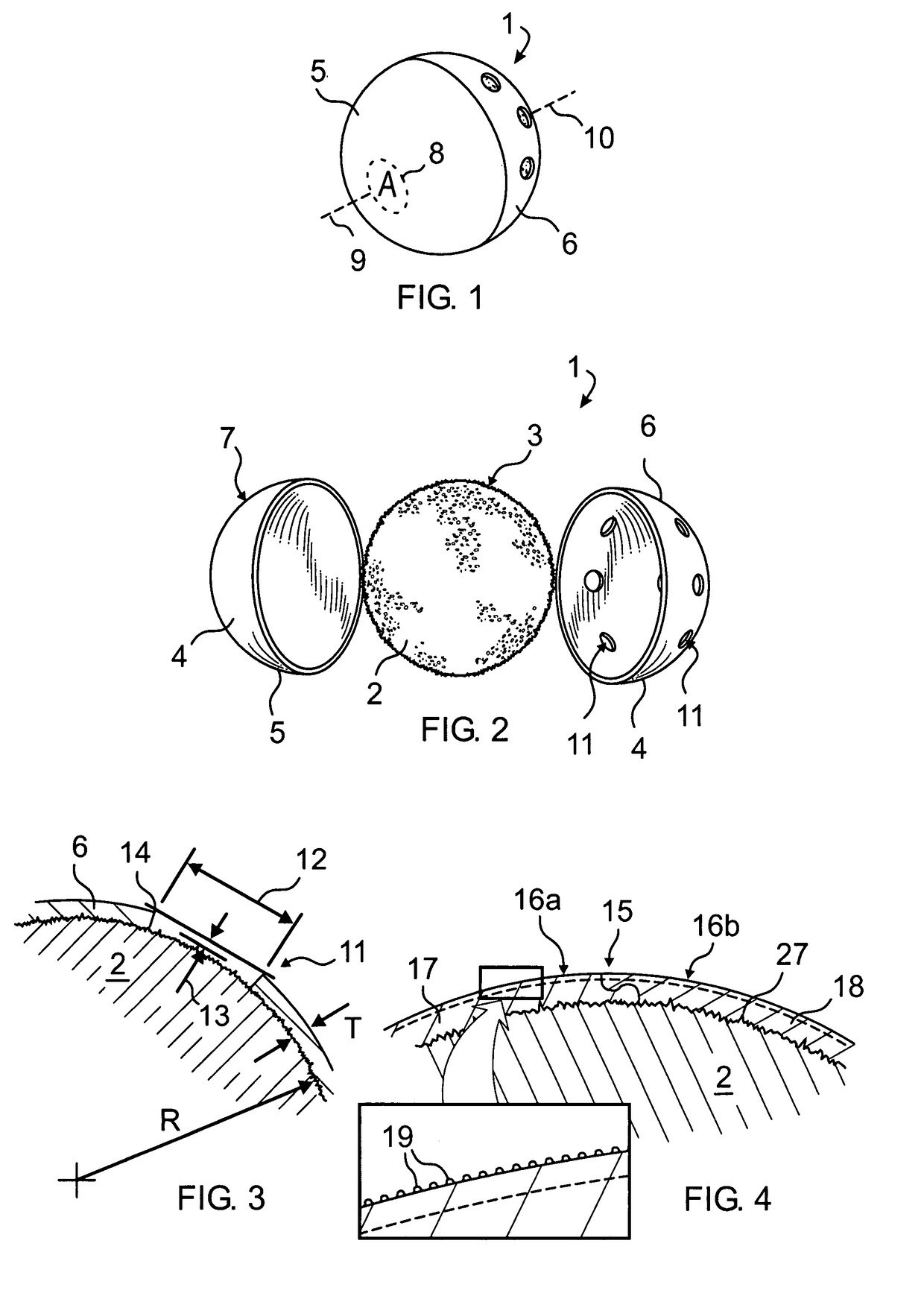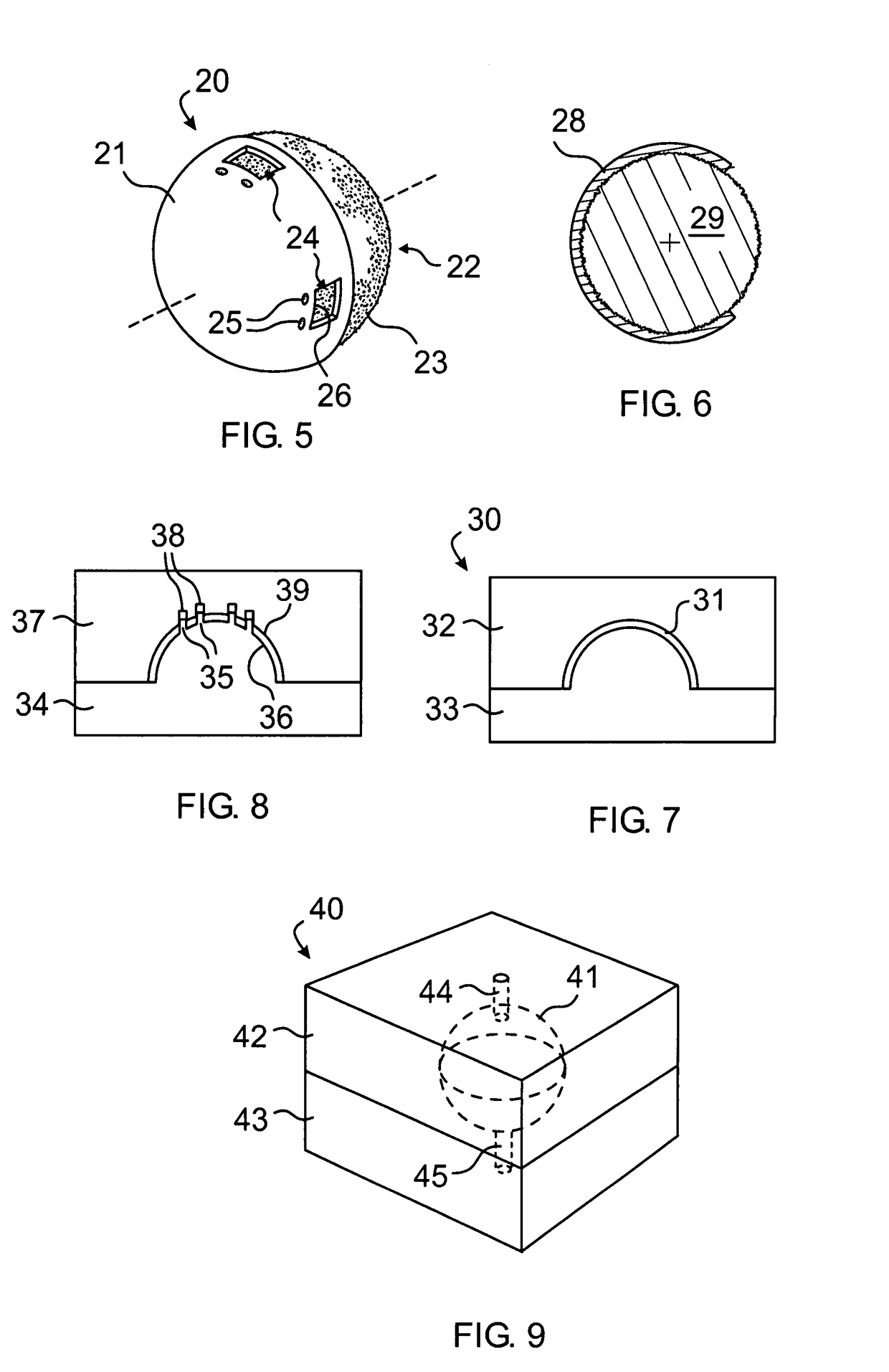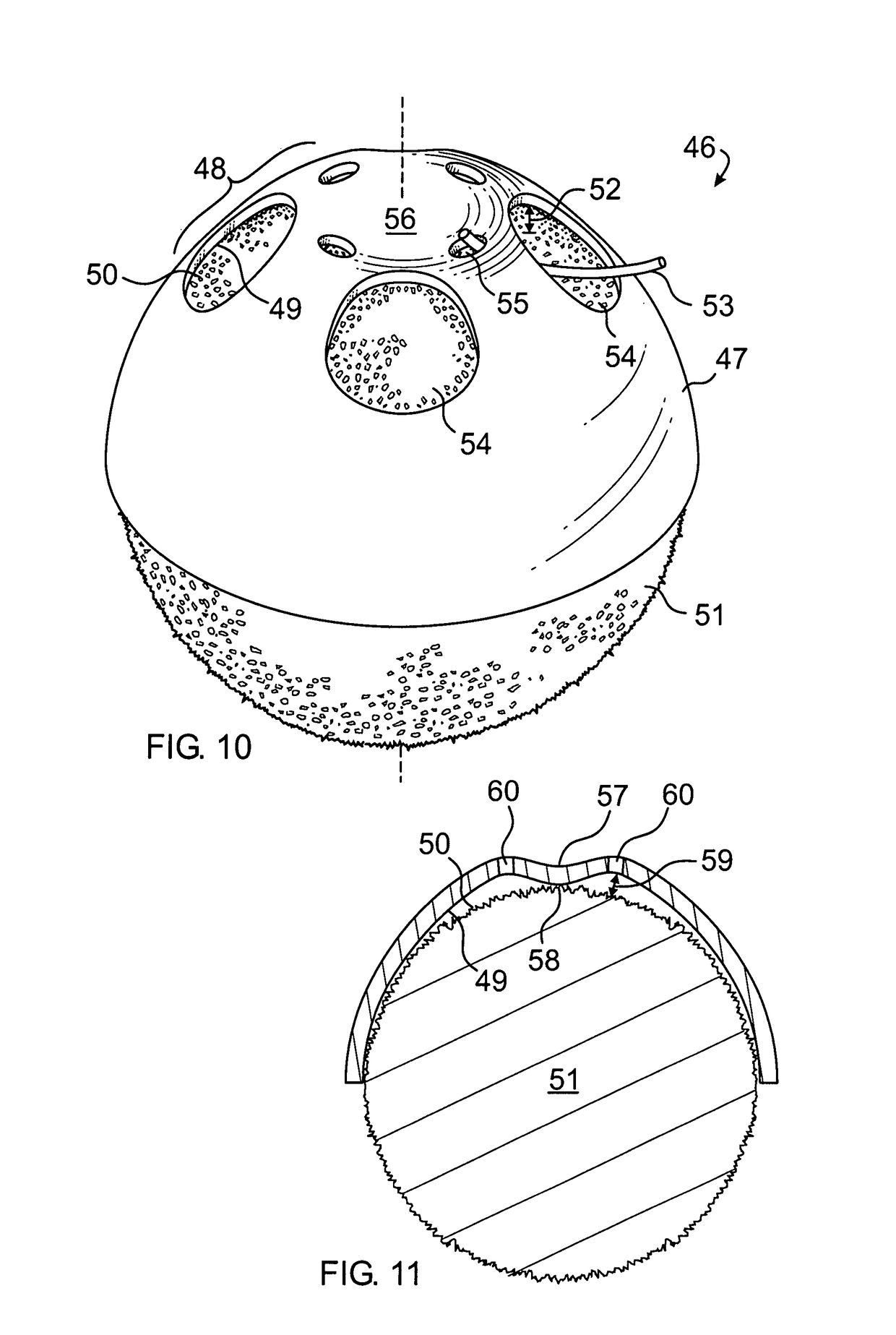Orbital implant coating having bulbously raised suture zone
a suture zone and implant technology, applied in the field of orbital implants, can solve the problems of difficult insertion and general unwanted condition of implant exposure, and achieve the effects of reducing irritation to neighboring tissues, facilitating rapid fibrovascular ingrowth, and facilitating insertion
- Summary
- Abstract
- Description
- Claims
- Application Information
AI Technical Summary
Benefits of technology
Problems solved by technology
Method used
Image
Examples
example
[0057]Enucleation: A standard enucleation is done including tagging of the extraocular muscles with bioabsorbable suture. The orbit is sized, using a set of sizing spheres, to determine the size of the implant to be used. An implant is of the proper size when it is the largest implant that can be placed deep into the orbit without creating tension on the overlying tissues and while allowing adequate room for an artificial eye of sufficient thickness.
[0058]Once the desired size of the implant has been determined, a sterile marking pen is used to draw the location of the muscle windows on the anterior polymer. The muscle windows are most easily cut by using a fine tipped, high temperature (>1093° C. or >2000° F.) battery operated handheld cautery and by cutting the coating material along the previously drawn lines. The remaining small pieces of polymer inside the windows can then be removed with forceps. In a similar manner suture exit holes may be formed in proximity to the windows. ...
PUM
 Login to View More
Login to View More Abstract
Description
Claims
Application Information
 Login to View More
Login to View More - R&D
- Intellectual Property
- Life Sciences
- Materials
- Tech Scout
- Unparalleled Data Quality
- Higher Quality Content
- 60% Fewer Hallucinations
Browse by: Latest US Patents, China's latest patents, Technical Efficacy Thesaurus, Application Domain, Technology Topic, Popular Technical Reports.
© 2025 PatSnap. All rights reserved.Legal|Privacy policy|Modern Slavery Act Transparency Statement|Sitemap|About US| Contact US: help@patsnap.com



